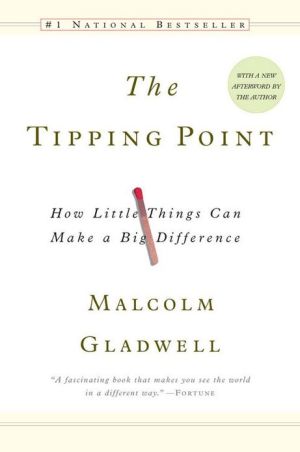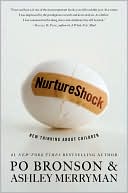Thrive: Finding Happiness the Blue Zones Way
What makes us happy? It's not wealth, youth, beauty, or intelligence, says Dan Buettner. In fact, most of us have the keys within our grasp. Circling the globe to study the world's happiest populations, Buettner has spotted several common principles that can unlock the doors to true contentment with our lives.\ Working with leading researchers, Buettner identifies the happiest region on each of four continents. He explores why these populations say they are happier than anyone else, and what...
Search in google:
What makes us happy? It's not wealth, youth, beauty, or intelligence, says Dan Buettner. In fact, most of us have the keys within our grasp. Circling the globe to study the world's happiest populations, Buettner has spotted several common principles that can unlock the doors to true contentment with our lives.Working with leading researchers, Buettner identifies the happiest region on each of four continents. He explores why these populations say they are happier than anyone else, and what they can teach the rest of us about finding contentment. His conclusions debunk some commonly believed myths: Are people who have children happier than those who don't? Not necessarily—in Western societies, parenthood actually makes the happiness level drop. Is gender equality a factor? Are the world's happiest places to be found on tropical islands with beautiful beaches? You may be surprised at what Buettner's research indicates.Unraveling the story of each "hotspot" like a good mystery, Buettner reveals how he discovered each location and then travels to meet folks who embody each particular brand of happiness. He introduces content, thriving people in Denmark, in Singapore, in northeastern Mexico, and in a composite "happiest place in America." In addition, he interviews economists, psychologists, sociologists, politicians, writers, and other experts to get at what contributes to each region's happiness.Buettner's findings result in a credible, cross-cultural formula and a practical plan to help us stack the deck for happiness and get more satisfaction out of life. According to Buettner's advisory team, the average person can control about forty percent of his or her individual happiness by optimizing life choices. These aren't unreasonable demands on a person's lifestyle, and they often require only slight changes. They fall into three categories that make up the way we live our lives: the food we eat, the way we exercise, and the social networks we foster. It's all about nourishing the body and the spirit. Heeding the secrets of the world's happiness all-stars can help us make the right choices to find more contentment in our own lives and learn how to thrive.
\ From Barnes & NobleStendhal insisted that to describe happiness was to diminish it, but most of us can't help but disagree. We all want to either share our happiness or somehow locate that sanctuary of unrepentant pleasure. Dan Buettner (Blue Zone) wants to help us. The founder of a project to research the most advantageous practices in health, longevity, and happiness believes firmly that most of us can achieve true contentment. His Thrive culls its lessons from the experiences of "happy zones" on each of four continents. By describing the positive attributes of each, he identifies the positive traits and habits that can turn that frown upside down. Now in paperback and NOOK Book.\ \ \ \ \ \ Publishers WeeklyBuettner, who reported on his study of health and longevity in his book, The Blue Zones, now applies his knowledge to happiness. In the global race for happiness, Denmark (along with Mexico and Singapore) come out ahead, perhaps due in part to the Danes' general distaste for the American work ethic. In Denmark, though work is an important part of one's identity, when the work is finished, people go home to their family and friends. Performance pressures are also much lower; even Danish prince Joseph was encouraged by his parents to pursue his dream of carpentry. Mutual trust and keeping one's word are other aspects that impact, in Buettner's view, the Danes' sense of happiness; deeper still is their ability to take on activities that interests and challenge them. Finally, Buettner offers helpful tips for choosing places to live and work happily. Even if some of these "clues" to happiness may seem frustratingly inaccessible to the average harried urbanite, the author offers a framework to strive for: seeking tradition, community, and calm as a starting point for happiness that lasts. (Nov.)\ \ \ From the Publisher“…a book about the happiest regions in the world. [Buettner] also recommends “land-mining your home with photos and memorabilia, so you’re constantly reminded of your history.” Adorning a hallway or a highly trafficked room with sentimental objects is a good way to start.” \ –Real Simple\ \ “Buettner travels to places…to interview “thrivers,” who report more life enjoyment than most people. He suggests ways that the reader can emulate these cheery folks.” \ –Atlanta Journal Constitution\ \ “For his 2008 best-seller, The Blue Zones , Dan Buettner searched the world for the truth about longevity. In his new book, Thrive, out Oct. 19, he tackles the topic of happiness. What are the happiest spots on Earth—and what secrets can we glean from them?” –Parade\ \ \ \ \ Library JournalIn this follow-up to his New York Times best-selling The Blue Zones (2008)—also available from Dreamscape Audio and read by Michael McConnohie (www.michaelmcconnohie.com)—Buettner (founder, Quest Network) draws on the latest research on longevity as well as on his own findings, offering colorful portraits of happy people across the globe and showing how climate, culture, government, and personal choice all contribute to personal well-being. McConnohie's narration could be a bit livelier, given the subject matter, but most libraries will still want a copy of this title owing to the high demand for Blue Zones, a chapter from which is included here. An alternate, wittier look at the link between geography and happiness is Eric Weiner's The Geography of Bliss.—Beth Farrell, Cleveland State Univ. Law Lib.\ \








